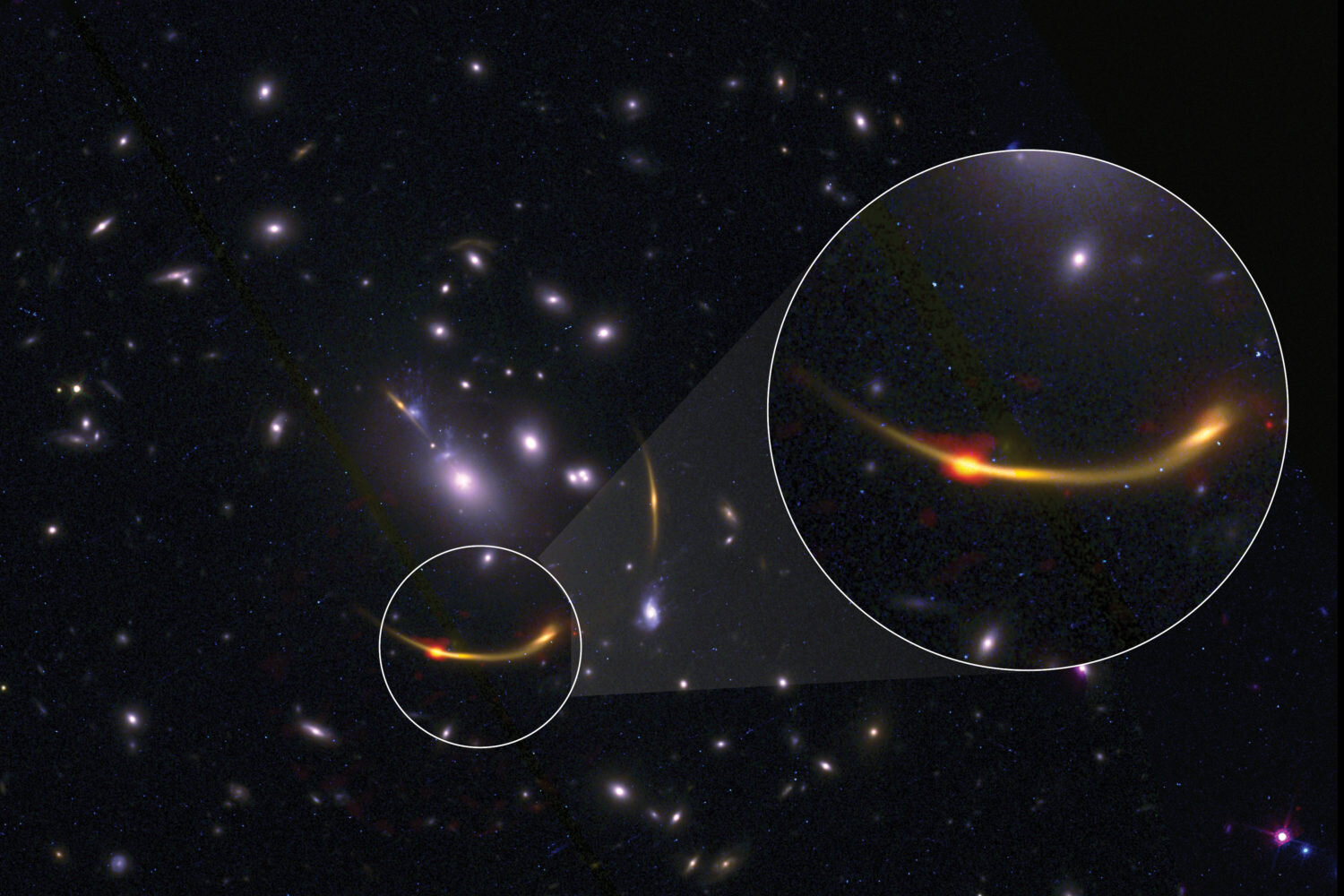Why do some galaxies die? These scientists are a step closer to understanding why

The magnified section shows a bright orange/red dot, which traces cold dust. Credit: ALMA (ESO/NAOJ/NRAO)/S. Dagnello (NRAO), STScI, K. Whitaker et al
Some of the earliest galaxies in the universe lived fast and furious, creating stars in a remarkably short amount of time, cosmically speaking.
These galaxies created stars by the hundreds annually in Earth years. By comparison, other galaxies, much like our own, the Milky Way, average about one a year. When they stop creating stars, galaxies are deemed dead by scientists.
But why do these galaxies just fizzle while others of similar age and magnitude continue birthing stars? That’s a puzzle a University of Florida researcher is working with a multi-university team to try to solve.
In a new study published in Nature, that team concluded that these galaxies simply ran out of gas, the fuel of star formation. It remains unclear where the gas went and why it is not being replenished, said Desika Narayanan, an associate professor of astronomy and a co-author of the study.
“Trying to grow anything requires a certain amount of fuel,” Narayanan said. “When enough stars have formed, they push back on parent clouds and destroy their homes. But that process only consumes a small percentage of fuel. The rest of the gas just gets dispersed.”
To find the rest of the dispersed gas, researchers had to look for the remnants of galaxies — space dust — using a large millimeter telescope at high sensitivity.
Yet, when researchers looked, they were unable to detect any dust left in these early, often massive dead galaxies. Determining why could help scientists understand what governs the life cycle of galaxies to better understand the universe.
Figuring out the life cycle of galaxies is similar to studying why a country is born, why it dissolves and how that impacts its inhabitants, Narayanan said.
“Galaxies are one of the dominant constituents in the universe,” he said. “They’re the brightest things we see. Trying to understand what governs the lifecycle of a galaxy is a fundamental question.”
